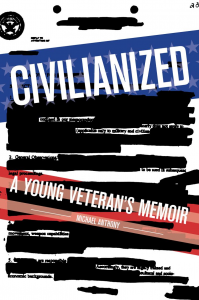 Brian Tracy is one of America’s leading authorities on the development of human potential and personal effectiveness. A dynamic and inspiring speaker, he addresses thousands of people each year on the subjects of personal and professional development, including the executives and staff of such firms as IBM, Arthur Andersen, McDonnell Douglas, and The Million Dollar Round Table. Prior to founding his own firm, Brian Tracy International, he had successful careers in sales and marketing, investments, real estate development, distribution, and management consulting. Tracy is the author of over forty books including the bestselling book Maximum Achievement.
Brian Tracy is one of America’s leading authorities on the development of human potential and personal effectiveness. A dynamic and inspiring speaker, he addresses thousands of people each year on the subjects of personal and professional development, including the executives and staff of such firms as IBM, Arthur Andersen, McDonnell Douglas, and The Million Dollar Round Table. Prior to founding his own firm, Brian Tracy International, he had successful careers in sales and marketing, investments, real estate development, distribution, and management consulting. Tracy is the author of over forty books including the bestselling book Maximum Achievement.
7) Question: How can I repeat the high level of activity and business in the military in my civilian life?
Answer: “The key to time management and high productivity is for you to set a schedule for yourself and then discipline yourself to keep to that schedule.”
Each evening, make a list of everything you have to do the following day. Organize the list by priority. Ask yourself, “If I could only complete one task on this list before I was called out of town for a month, which one task would it be?”
Whatever you have decided is the most important thing you can accomplish, begin on that one task immediately that you start work. Don’t waste time chatting with coworkers, drinking coffee, playing with the computer or reading the newspaper. Plunge into your work immediately and concentrate on finishing one important task as quickly as you can.
Practice single-handling. Military people have the ability to focus and concentrate on one thing at a time. This is still the most important single quality for success in any area of life, and you already know how to do it at a high level. Your job now is to repeat this focus and concentration on your major tasks every single day. This alone will motivate you into action and keep you motivated to work busily all day long.
(8) Question: What advice do you have for returning veterans who miss the intensity, purpose and focus of war but who now want to find something new and positive to be focused on?
Answer: Perhaps the most important thing that you can do for your future is to learn and practice setting goals and working on them every day.
Decide exactly what you want in each area of your life, and write it down. Set a deadline for the accomplishment of your most important goals.
Make a list of everything that you can think of that you could do to achieve an important goal. Begin work on that list immediately, and keep working on it day after day.
As you feel yourself moving progressively, step-by-step, toward a goal of your choice, you will feel more energized, purposeful, and focused than if you were just going from day to day with no clear direction.
9) Question: For service people who can only have brief, fleeting conversations with family and friends back home, how can they quickly and most effectively communicate with their loved ones?
Answer: The most important thing about communication is that it be regular, positive and loving. Never criticize, complain or condemn in your brief correspondence via email with the members of your family and your friends.
Always be honest, but be positive and cheerful as well. The people who care about you are more worried about your health, wellbeing and survival than anything else. Regularly tell them how well you are doing and how good you feel.
When they share their problems with you, be sympathetic and supportive. Offer advice and suggestions. Take an interest in your family and friends back home and make it clear that you care about them, even though you are far apart.
In closing let me say that I feel that you are some of the most important people in America. What you have done, and are doing, to support and defend our way of life is of far greater value than any of the business people or politicians going through their day to day work.
As veterans, you are men and women of courage, confidence and character. You have laid your life on the line to defend our way of life. You are some of the most important and respected people in our society.
The good news is that, of all the institutions in society, the military and the men and women within the military are the most respected. You are more respected than Congress, the Senate, school teachers, doctors, lawyers, architects, engineers and rich people. Military people are more esteemed than anyone else, and they should be.
Check Out the Entire Interview
Part one: Click Here
Part two: Click Here
Part three: Click Here





 It’s Spring Break this week at my school and since I’m too broke and don’t have enough time to do anything to celebrate spring break, I’ve decided to go raw vegan for the week. I’ve tried going vegan before, but never as a raw vegan.
It’s Spring Break this week at my school and since I’m too broke and don’t have enough time to do anything to celebrate spring break, I’ve decided to go raw vegan for the week. I’ve tried going vegan before, but never as a raw vegan.